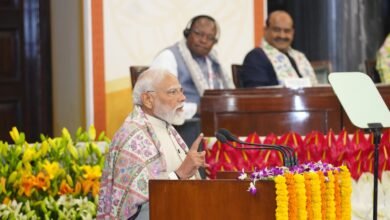
News Mania Desk / Agnibeena Ghosh/23rd April 2024
In a landmark judgment rendered on April 15, a division bench comprising justices Vibha Kankanwadi and S G Chapalgaonkar of the Aurangabad bench of the Bombay High Court annulled the marriage of a young couple who were unable to consummate their union due to the man’s ‘relative impotency’. The ruling, which underscored the couple’s agony of frustration and the need for compassionate intervention, has sparked discussions about the complexities surrounding marital relationships and the legal recourse available to individuals facing such challenges.
The case stemmed from a 27-year-old man’s plea to annul his marriage after a family court rejected his 26-year-old wife’s application seeking annulment on the grounds of his ‘relative impotency’. The high court, in its order, emphasized the distinction between ‘relative impotency’ and general impotency, noting that while the latter refers to the inability to copulate in general, the former pertains to a situation where a person may be capable of intercourse but unable to perform it with their spouse due to various physical or mental reasons.
In this particular case, the court determined that the husband exhibited relative impotency towards his wife, resulting in the non-consummation of their marriage. While initially hesitant to acknowledge his condition, the husband eventually admitted to his relative impotency, recognizing that doing so would not subject him to the lifelong stigma associated with general impotency. The court emphasized the importance of distinguishing between relative and general impotency, emphasizing that acceptance of the former would not brand the husband as impotent in the broader sense.
The couple, who married in March 2023 but separated after just 17 days, cited the lack of consummation as the primary reason for their marital discord. The woman, in her plea seeking annulment, lamented the absence of mental, emotional, and physical connection between them, attributing it to her husband’s relative impotency. Despite initially attributing the non-consummation to the wife, the husband eventually admitted to his condition, expressing a desire to avoid the stigma associated with being labeled impotent.
The family court’s rejection of the wife’s plea to expedite the divorce proceedings at the admission stage prompted the couple to seek recourse in the Bombay High Court. The division bench, recognizing the genuine nature of the couple’s grievances and the need for expedited resolution, quashed the family court’s order and annulled the marriage, declaring it null and void.
The judgment has reignited conversations about the complexities surrounding marital relationships and the legal avenues available to individuals facing challenges such as relative impotency. It underscores the importance of compassion and understanding in resolving disputes arising from such intimate matters, particularly when the well-being and dignity of individuals are at stake.
In conclusion, the Bombay High Court’s decision to annul the marriage of the young couple underscores the need for compassionate intervention in cases where individuals find themselves unable to navigate the complexities of marital relationships. By recognizing the nuances of relative impotency and prioritizing the couple’s well-being, the court has set a precedent for addressing similar cases with empathy and understanding in the future.






